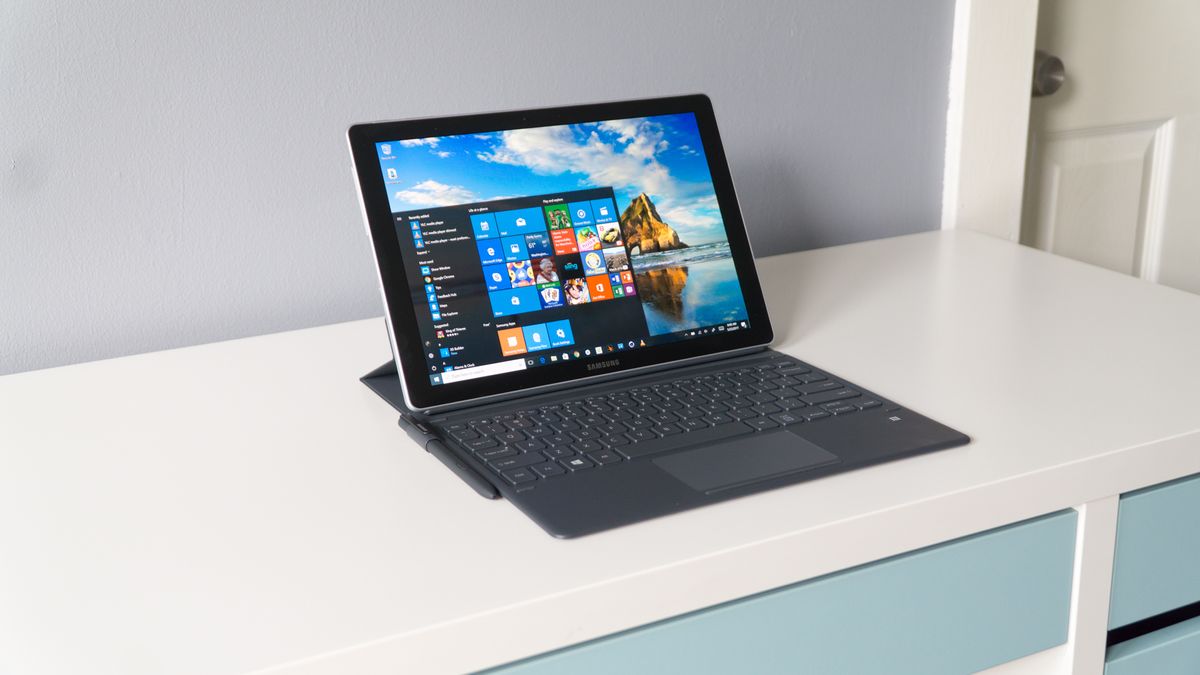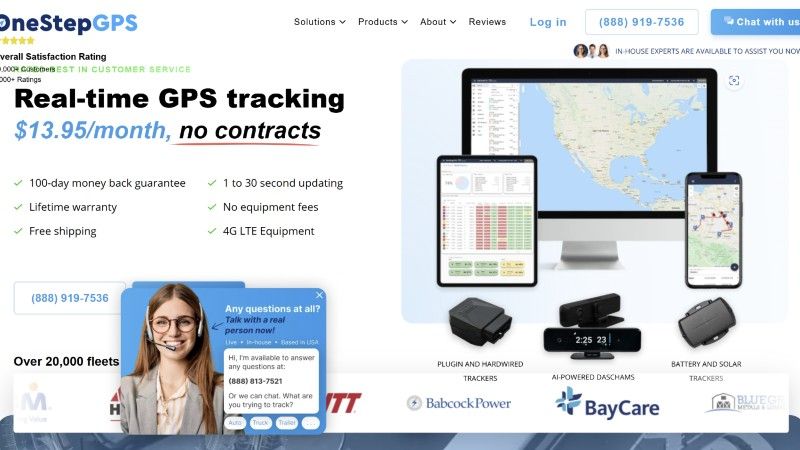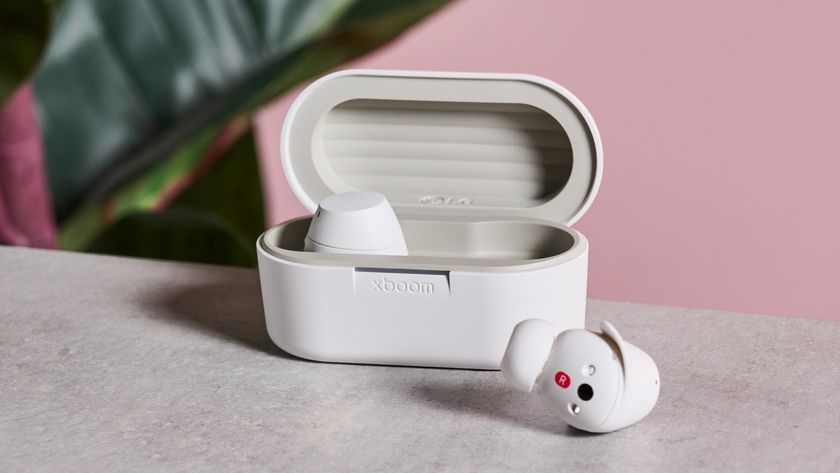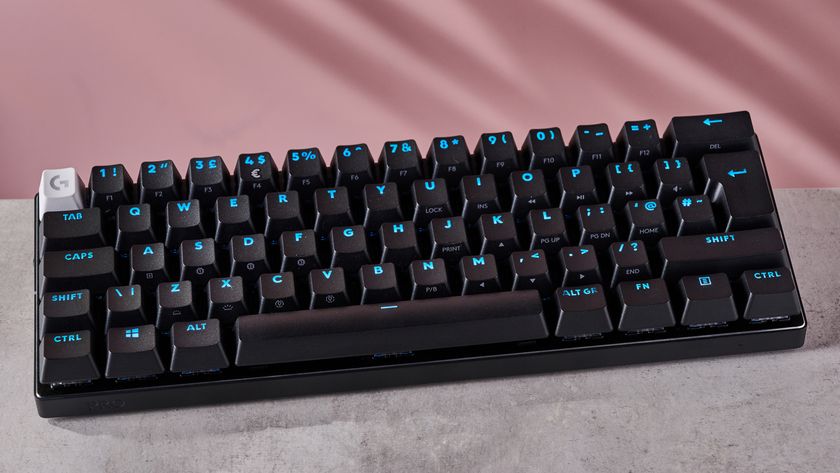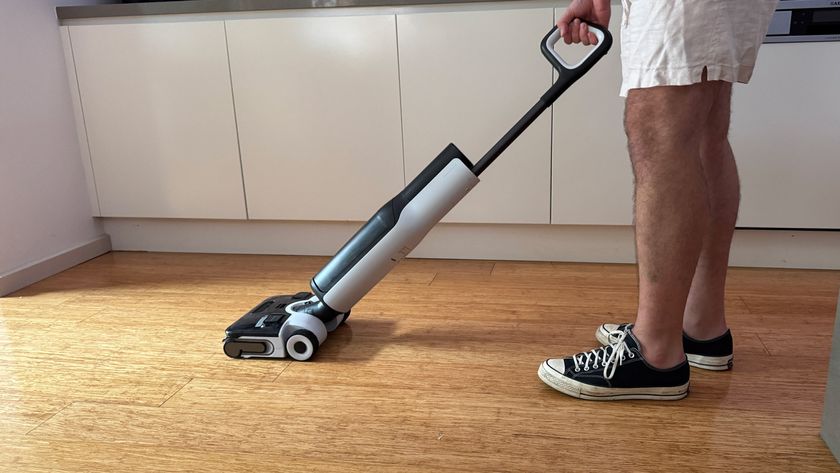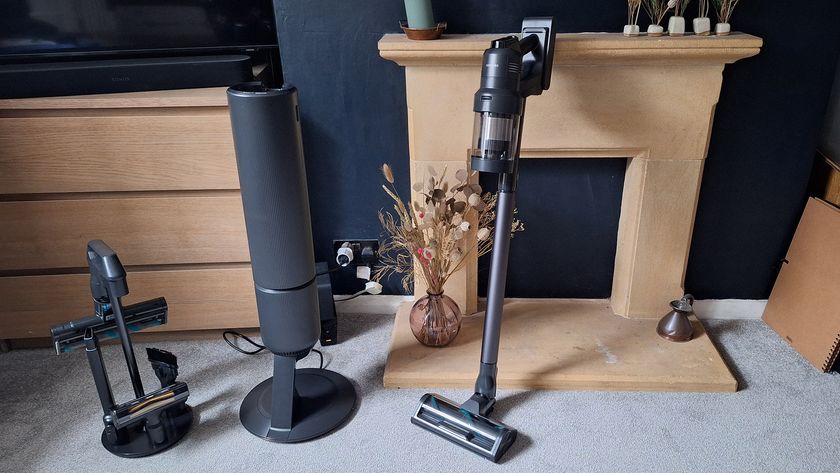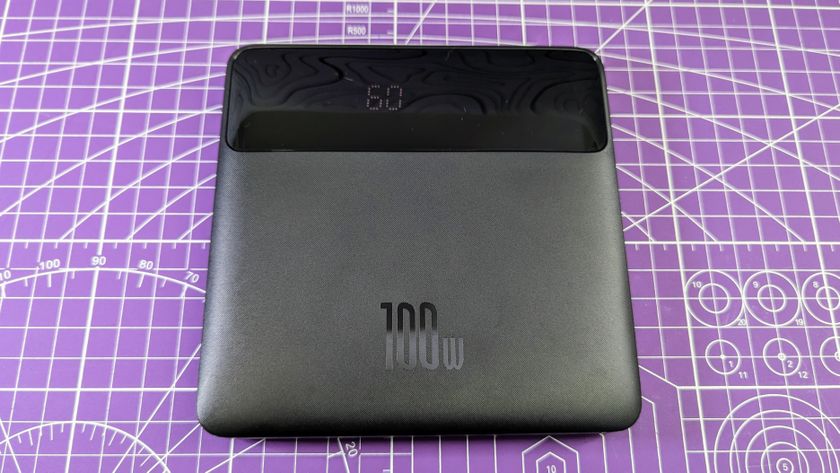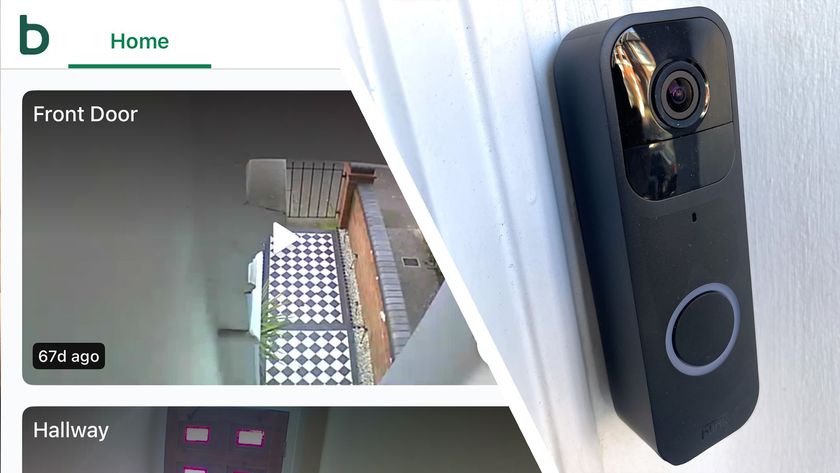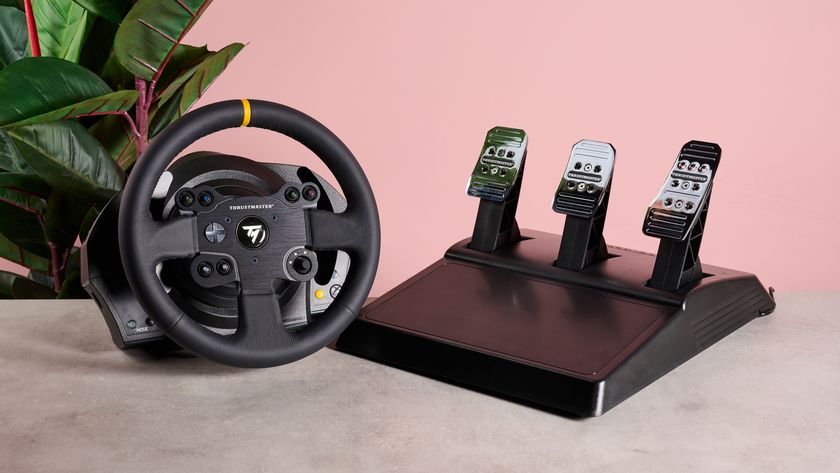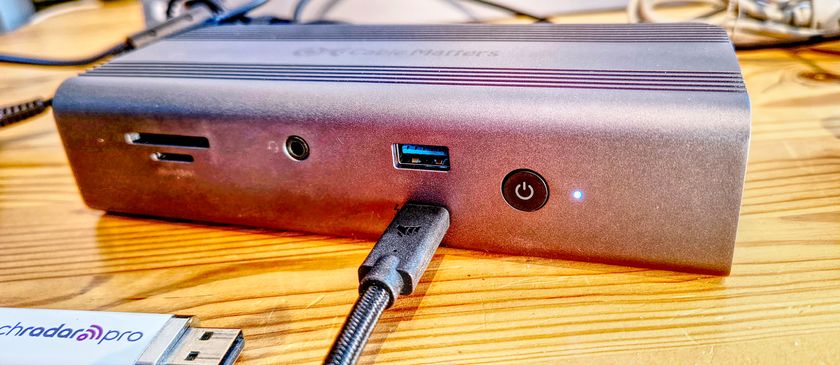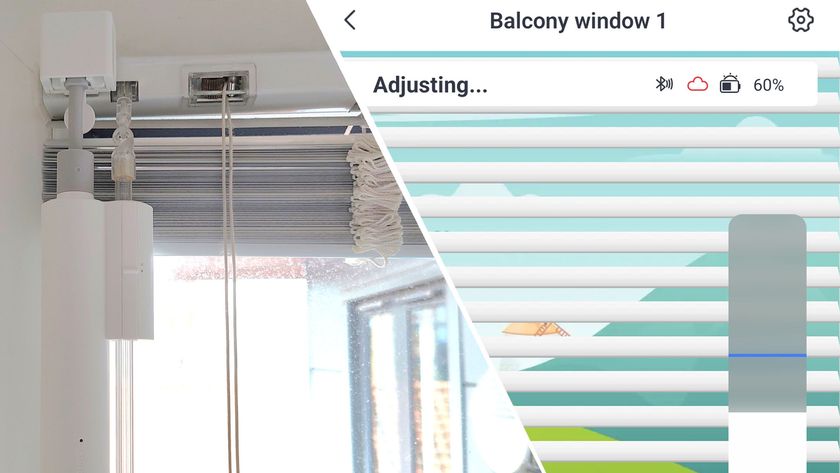Why you can trust TechRadar
Here is how the Samsung Galaxy Book fared in our suite of benchmark tests:
3DMark Sky Diver: 4,071; Time Spy: 374; Fire Strike: 935
Cinebench CPU: 314 points; Graphics: 43 fps
Geekbench 4 Single-Core: 3,868; Multi-Core: 7,564
PCMark 8: 2,711
PCMark 8 Battery Life: 3 hours and 10 minutes
Battery Life (TechRadar movie test): 7 hours and 32 minutes
Power-wise, the Samsung Galaxy Book fights in the same ring as Microsoft’s Surface Pro 4 and even the iPad Pro. That said, it’s clear that updated hardware does make a difference, albeit an incremental one.
The Galaxy Book’s Kaby Lake Intel processor stands to give it a bit more power over its rivals from Microsoft and Apple, but not necessarily more longevity.
As you can see from the benchmarks, the Galaxy Book is marginally more powerful than the Surface Pro 4, which in real-world use will amount to basically no difference.
Standard workloads will be just fine on the Galaxy Book, but anything beyond basic photo editing will likely result in a trip to lag city.
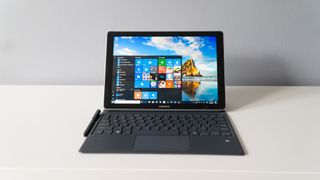
Display and battery life
Unsurprisingly, anything you do on the Galaxy Book, whether it be write a paper or binge a series on Netflix, will look amazing. Samsung knows how to make an incredible screen, bringing its myriad learnings from mobile to PCs.
While it’s not as sharp as the one inside the Surface Pro 4, the Galaxy Book display is just as color-rich, if not more so. That makes video and still media pop even better. We didn’t notice any egregiously saturated colors between it and other displays, either.
That said, don’t expect incredible battery life gains from the supposedly more power-efficient Kaby Lake processor inside. The Galaxy Book reported a PCMark 8 battery life score five minutes shorter than the Surface Pro 4 did, at 3 hours and 10 minutes.
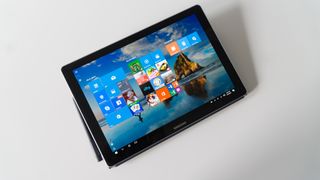
However, like most devices, the Galaxy Book performed far better at local video playback, lasting for a cool 7 hours and 32 minutes. That’s about as much time as we’re used to getting out of the Surface Pro 4 in general use, all told.
Regardless, both tested times fall well below Samsung’s promise of up to 11 hours from the 12-inch device. Sure, it’s par for the course, but that doesn’t make the discrepancy any better.
Samsung also touts its tablet’s fast charging capabilities via USB-C as part of its battery offering, promising a full charge in less than 3 hours. However, that doesn’t sound very fast and is actually far longer than the estimates we’ve seen Windows 10 provide from near-zero charge in the Galaxy Book’s battery.
Also, the light that indicates the Galaxy Book is charging is placed right beside the front camera and glows red – not the best design choice given Samsung’s recent run-ins with security and privacy.
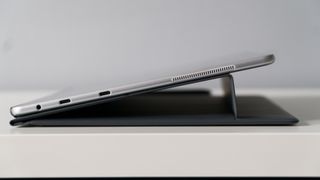
We liked
The Samsung Galaxy Book does offer plenty in the box for the price, unlike some key rivals that refuse to include keyboard covers in their productivity tablets. Plus, the screen is just downright gorgeous, and the tablet is more than thin and light enough for true portability.
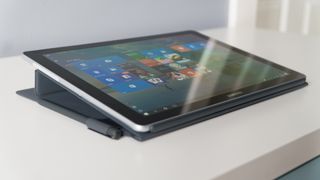
We disliked
While you get a lot in the box for the price, the Galaxy Book is too easily outpriced for what’s on offer when stacked up against rivals, namely the Surface Pro 4. Also, locking biometric login capability behind a secondary device – via a Galaxy phone with the Samsung Flow app – is not a good look when rivals offer it for no extra cost. Finally, we’re no bigger fans of Samsung’s folding approach to keyboard covers than when it tried practically the same thing on the Galaxy TabPro S, which didn’t go over well then.
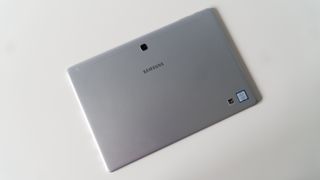
Final verdict
Unless you’re really into Samsung products and will make liberal use of Samsung’s Galaxy phone-exclusive syncing and biometric login features (Samsung Flow), there aren’t many compelling reasons to pick up the Galaxy Book over similarly priced competitors. After all, the Surface Pro 4 offers biometric login through its own IR camera at no extra cost.
The Samsung Galaxy Book is a strong effort to contend with the current king of 2-in-1 PC devices, Microsoft, but falls short in some key areas that keep it from making your buying decision any more difficult than it already was. If you’re a major Samsung fan, then we don’t need to convince you of anything – this is the companion to your Galaxy phone that you’ve been waiting for.
However, for the discerning reader that’s looking to buy a detachable 2-in-1 laptop, there are plenty of options out there that are even stronger for everyone, regardless of the smartphone they own.
Joe Osborne is the Senior Technology Editor at Insider Inc. His role is to leads the technology coverage team for the Business Insider Shopping team, facilitating expert reviews, comprehensive buying guides, snap deals news and more. Previously, Joe was TechRadar's US computing editor, leading reviews of everything from gaming PCs to internal components and accessories. In his spare time, Joe is a renowned Dungeons and Dragons dungeon master – and arguably the nicest man in tech.
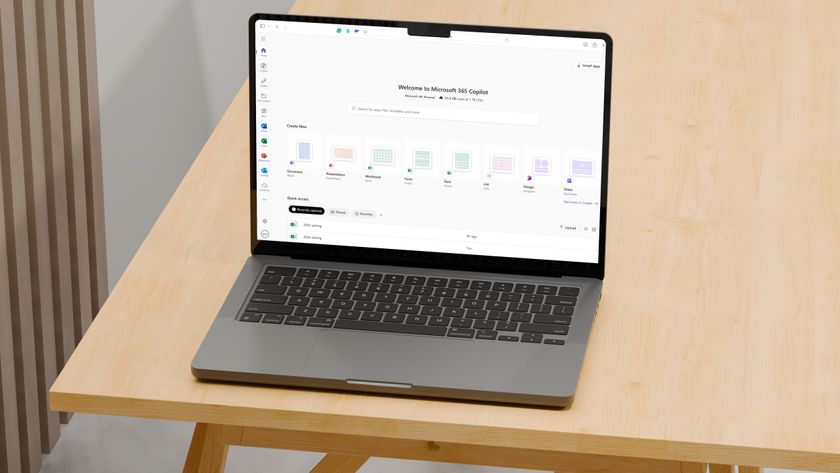
5 things I never realized about using Microsoft Office online
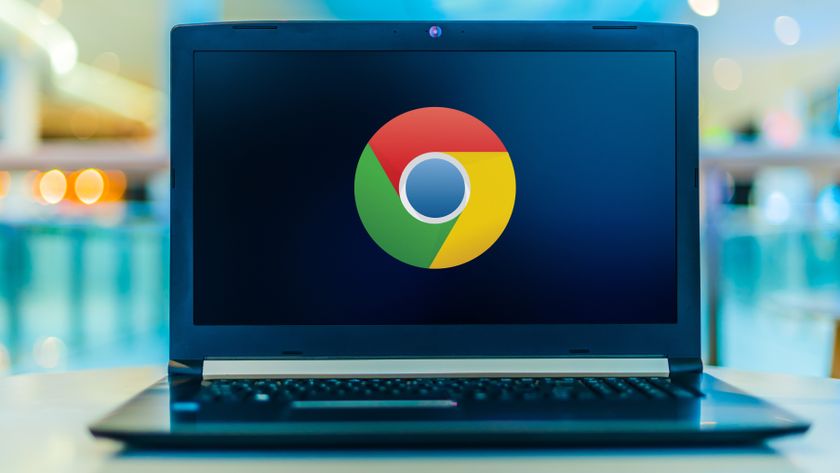
Gave up trying to install Chrome on Windows 11 because it wouldn’t work? Google has fixed this error, but I can’t believe how long it took

Humans as hardware - no, not the name of a new Matrix movie prequel but a shocking idea about human tissue
